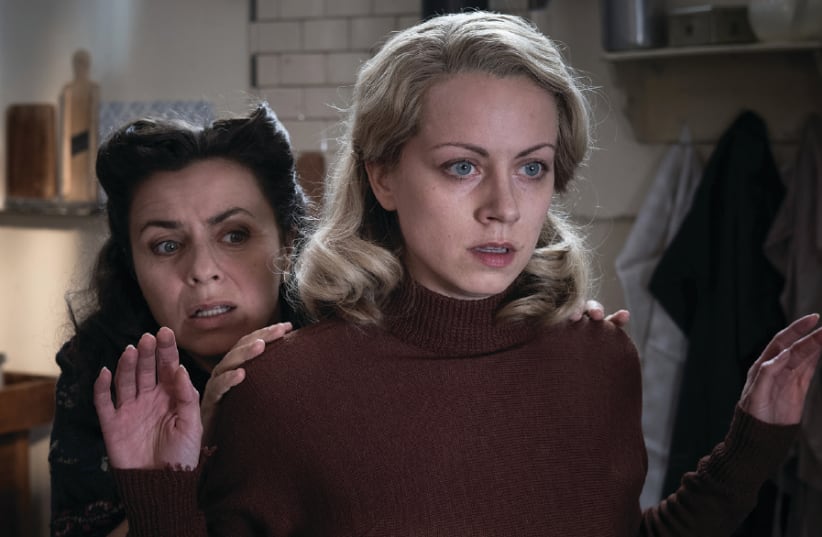THE INVISIBLES Hebrew title: Habilti Ne’erimDirected by Claus RafleWith Max Mauff, Alice Dwyer,Aaron Altaras, Ruby O. FeeRunning time: 110 minutesIn German. Check with theatersfor subtitle information.
Claus Rafle’s film The Invisibles tells the fascinating, true story of four Jews who were among the thousands who survived the Holocaust by hiding out in Berlin.The movie, which is a blend of feature film and documentary and was co-written by Alejandra López, shows these four young people during the war in scenes shot with actors, and intersperses these with recent interviews with the now elderly survivors.This hybrid film is a gamble that pays off. It plays like a thriller but is all the more remarkable for being true.In 1943, the Nazis declared that there were no more Jews in Berlin. But there were actually 7,000 Jews who went into hiding there. Of those, 1,500 survived. The only other film I can think of that touched on this subject was Aimee & Jaguar, which told the story of a Jewish woman who hid out and had an affair with a Nazi officer’s wife. When I saw that film, nearly 20 years ago, I thought the heroine must have been one of just a handful of Jews who stayed in Berlin.The Invisibles focuses on the survival of its main characters – two young men and two young women in their late teens and early 20s, in the shadow of the Nazi war machine. Cioma Schonaus, played with quirky authenticity by Max Mauff, who had a key role in Steven Spielberg’s Bridge of Spies, is an art student who figures out a way to leverage his talent into a career of forging passports. His goofy smile helps him pass himself off as a soldier about to be mobilized who needs a place to stay in Berlin, while his quick thinking gets him out of many jams. First and foremost, like all the other main characters, he is a kid. When he earns far more than he needs to support himself, instead of saving the money for a rainy day, as a mature adult would have, he fulfills a childhood dream of buying a boat. He gets himself into trouble by losing forged passports and his tools several times. And when he meets a young Jewish woman, Stella Goldschlag, a notorious hunter for the Gestapo (whose life was dramatized in a recent German musical), who turned in hundreds, perhaps thousands of Jews in hiding, at first he is so taken with her beauty that he nearly tells her where he is living.Hanni Levy (Alice Dwyer) dyes her hair blond early in the war and is the most solitary of the heroes. An orphan, she spends her days walking around the city and trying to blend in, fighting exhaustion, hunger and loneliness.Eugen (Aaron Altaras), whose stepfather was a gentile, is sheltered by a number of German Socialist and Communist families, staying one step ahead of the Nazis throughout the war.Ruth (Ruby O. Fee, a Costa Rican actress who is quite convincing as a German) has perhaps the most incredible story of all: She spends much of the war as a housekeeper for a German official and black marketeer, who often entertains Nazi commanders in his home.Several common threads connect their stories. The first is that none of them survived alone. All were helped by Germans who, for different reasons, chose to defy the Nazis and risk their own lives by aiding and sheltering them. The second is that they never lost their optimism, their sense that they were going to survive. The third is that all of them were incredibly lucky, not just once but many times.But perhaps most important to audiences is that all four characters are very appealing, both as young people and in the contemporary interviews. All of them focus on their gratitude for those who helped them and on their luck at surviving what killed so many others.The documentary aspect of the film works well because if not for the interviews with the now elderly survivors, these stories would be beyond belief. It’s a testament to Rafle’s skill as a director that even though we see these interviews from the beginning and know that the characters survived, The Invisibles keeps you on the edge of your seat.
Seeing is believing
'The Invisibles' seems too incredible to be true.
